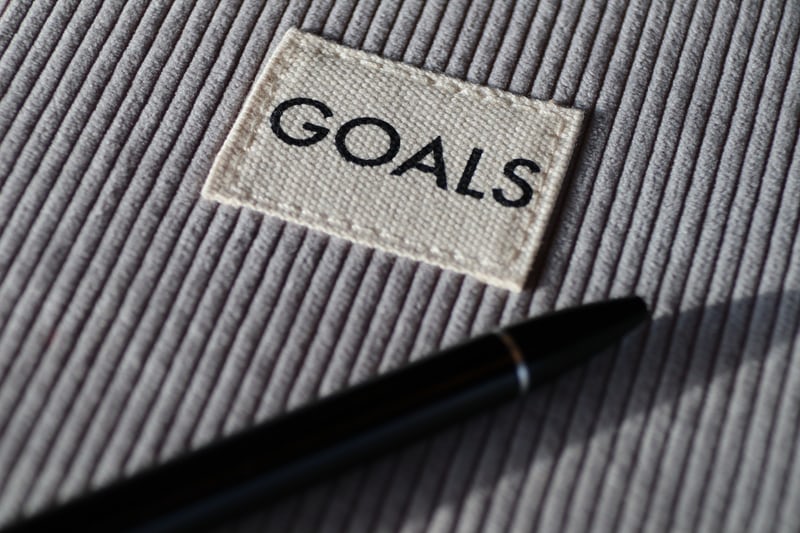Have you ever fallen short of your goals? If so, you’re normal. Starting with good intentions and falling short of our intentions is what behavior scientists call the intention action gap. When we experience this phenomenon, it’s easy to feel immobilized, especially with goals that are big, hairy, or audacious. But even small goals can feel overwhelmingly hard sometimes. No matter how big or small your current aspirations may be, it’s possible to get unstuck and achieve your goals.
Ask for help
The bigger your plans the more help you need. Asking for help provides the needed boost to get unstuck and achieve your goals. Building an accountability system helps you show up, do hard things, and practice them consistently. Sometimes, a peer isn’t enough to propel your progress forward, however. Hiring a coach or a professional might be the best step if your goal involves doing something new or working through the barriers that are keeping you stuck. Asking for help from an expert can expedite your progress toward your goals. If cost is an issue, try learning a new skill for free on a place like YouTube or on learning platforms like Coursera.
Set a deadline
Procrastination is common. When there’s no deadline looming or pressure to perform, it’s normal to put off tasks that would move you closer to your goals. To build habits that stick, harness the discoveries of behavior science. EAST is an acronym that encourages making new behaviors, or habits, easy, attention-grabbing, social, and timely. The timely part of this framework encourages setting deadlines to overcome natural tendency to procrastinate. Behavior scientists have found that setting deadlines will help you get unstuck and achieve your goals.
Create systems
Rather than setting one-time goals, like running a marathon or finishing a big project, shift your mindset from goal setting to systems. Atomic Habits author, James Clear, advocates for the repetition of daily habits that lead to sustainable goals instead of one-off accomplishments. Doing so requires consistent practicing of what you’re learning and adjusting as you go. Systems help tie new behaviors to existing ones and provide a daily rhythm that says “after I do this, then I will do that.” As you build new habits you increase your confidence, which is an important step to make habits rewarding. When new habits are rewarding, they stick. Creating systems will help you get unstuck and achieve your goals.
Go smaller
Big goals are often the antagonist of success. While setting goals that challenge you can lead to success, much of the time they don’t. To get unstuck and achieve your goals more often, make your goals smaller. Break your goals into bite-sized pieces that may seem ridiculously easy but are key to building the systems that lead to success. Small compound habits are more impactful in the long-run than one-time goals are in the short-term. Behavior scientist, BJ Fogg, has coined the term “tiny habits” to describe these small, achievable actions that help us achieve our goals and build better habits. To accomplish big things, go smaller.
If you need to get unstuck and achieve your goals, ask for help, set a deadline, create systems, and go smaller. Pick one of these areas that resonate with you and see how it helps you move toward your goals, no matter how big or small.
